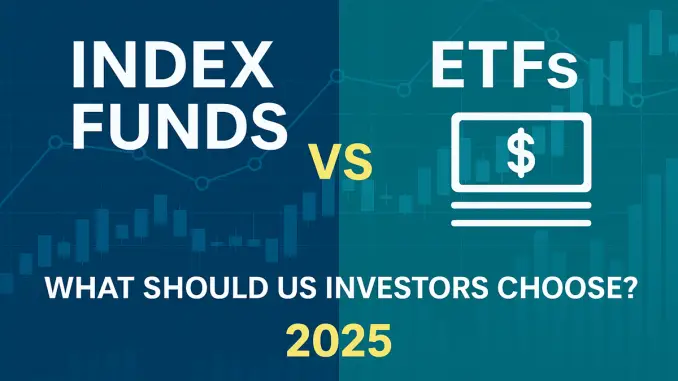
In 2025, investors are increasingly leaning toward low-cost, diversified investment vehicles like Index Funds and ETFs (Exchange-Traded Funds). While both are excellent options for building long-term wealth, understanding the core differences can help you determine which one better suits your financial goals.
Understanding the Basics
Index Funds are mutual funds that track a specific market index, such as the S&P 500. They are typically purchased through fund companies and are priced only once per trading day, based on their net asset value (NAV).
ETFs, on the other hand, also track market indexes but are traded on stock exchanges throughout the day, just like individual stocks. They offer greater flexibility and often come with lower expense ratios compared to traditional index funds.
Key Differences in 2025
- Trading Flexibility
ETFs can be bought or sold during market hours, providing real-time pricing. Index funds are only traded once per day after market close. - Minimum Investment
Index funds may require minimum investments (typically $1,000 or more), while ETFs can be purchased per share, often with no minimum. - Fees and Tax Efficiency
ETFs generally offer lower expense ratios and are more tax-efficient due to in-kind redemption mechanisms. This makes them a preferred option for taxable brokerage accounts. - Automatic Investing
Index funds are easier to automate within retirement accounts like 401(k)s and IRAs. ETFs may require additional steps for recurring investments unless your broker supports fractional shares and automation.
Which Is Better for US Investors in 2025?
Choose Index Funds if:
- You prefer a hands-off approach.
- You're investing through a retirement plan.
- You want simplicity and automation.
Choose ETFs if:
- You want more control over trade timing.
- You are investing in a taxable brokerage account.
- You value cost efficiency and flexibility.
Both options offer diversified exposure to the market and are ideal for long-term investing. The right choice often depends on your preferred investing style, account type, and tax situation.
Conclusion
For U.S. investors in 2025, both index funds and ETFs remain top choices for building a passive, low-cost portfolio. If you prioritize simplicity and automation, index funds may be better suited. If flexibility and tax efficiency matter more, ETFs could be the right fit. Either way, both support the fundamental goal of consistent, long-term wealth creation.
Leave a Reply